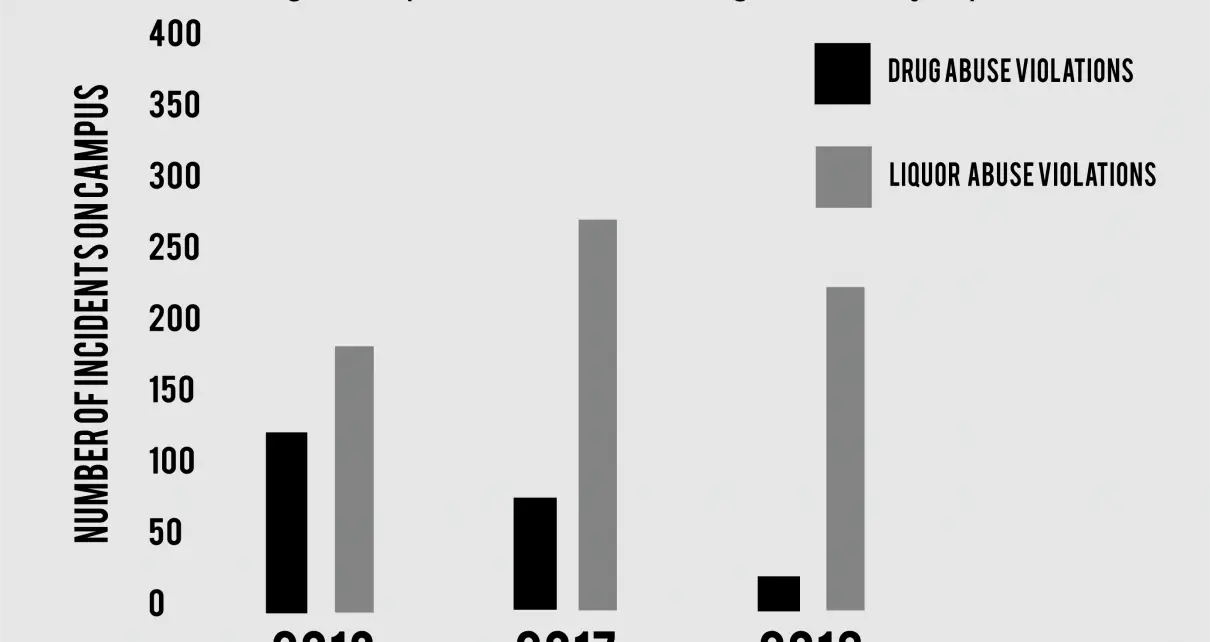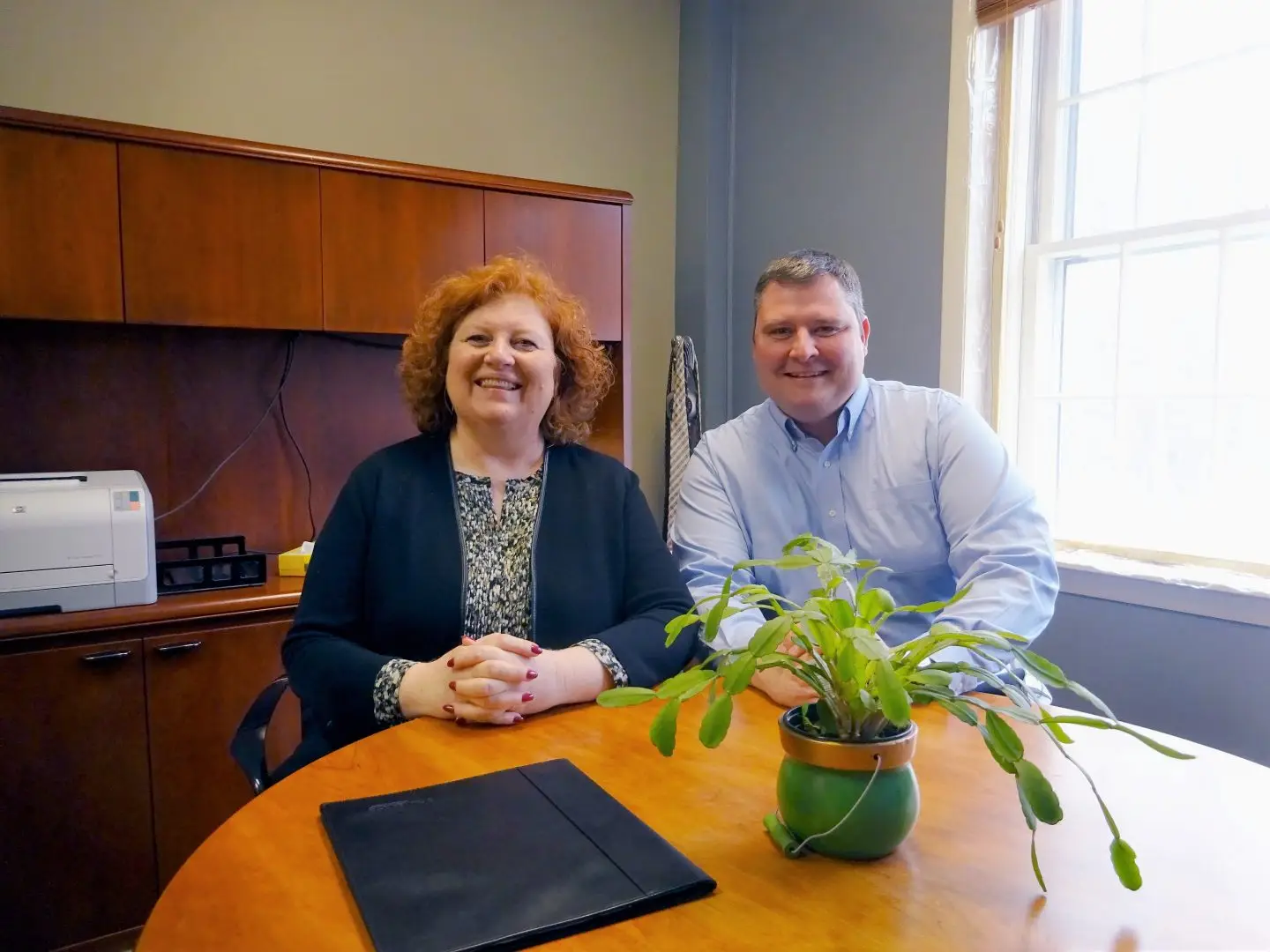The Jeanne Clery Disclosure of Campus Security Policy and Campus Crime Statistics Act (The Clery Act) is released each year to report statistics of criminal activity on the Southern New Hampshire University Campus, as well as all colleges and universities. The report is released every October and provides statistics from three years prior.
This year’s report showed a decrease in drug abuse violations on campus from the years 2016-2018. The violations started at 114 in 2016 and dropped to 9 in 2018. When asking Jim Winn, the campus’s Director of Public Safety, about the decrease he stated,
“The state changed the law on possession of marijuana. It used to be any possession of marijuana was a misdemeanor. Now if you have less than ¾ an ounce, which is most of our cases, it’s not an arrestable offence anymore.”
The new law on possession of marijuana took place in late 2017. This explains the drastic decrease of drug abuse violations in 2017 and 2018.
When asked how drug abuse is monitored, Winn replied that most of the cases come from people who call to report drug use and staff from Res Life who do rounds of the campus.
The statistics of rape on campus remained relatively the same over the years, ranging from 5 cases in 2016 and 2017, to 6 in 2018. Rebecca Lawrence, the Title XI coordinator and equity officer, answered questions regarding the campus’s actions to promote reporting of sexual assault. Lawrence stated she has a list of information she gives every year for athletes, RA’s, Greek life and other groups on how to report sexual assault and what actions fall under Title XI.
Lawrence was then asked if she thinks the numbers that were reported are accurate. She responded by saying, “I think it’s always going to be under-reported, and to report is a really personal thing, so people may tell their RA’s but there will always be people who may never tell anyone but a therapist, if that.”
The takeaway is that sexual assault can’t always be prevented but spreading awareness that it exists and learning what resources are offered for students are the main points SNHU staff is trying to promote. The number of drug abuse violations and sexual assault cases reported may never be one hundred percent accurate but the SNHU faculty, staff, as well as students have the power to create a safe environment by being kind to others and asking for help when needed.




